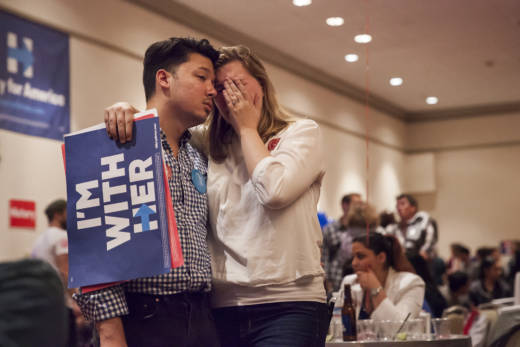Democratic presidential candidate Hillary Clinton finds herself on the wrong end of an electoral split, moving ahead in the popular vote but losing to President-elect Donald Trump in the Electoral College, according to the latest numbers emerging Wednesday.
As of 10 a.m. ET, Clinton had amassed 59,299,381 votes nationally, to Trump's 59,135,740 — a margin of 163,641 that puts Clinton on track to become the fifth U.S. presidential candidate to win the popular vote but lose the election.
Neither candidate got more than 50 percent of the vote — as of 10 a.m. ET, Clinton stood at 47.7 percent and Trump at 47.5 percent.
"Trump crossed the 270 electoral vote threshold at 2:31 a.m. ET with a victory in Wisconsin," NPR's Carrie Johnson reports.
If the final tally follows the current trend, the result would mark the second time in the past 16 years that a Democrat has lost a national election while winning the popular vote. In 2000, Al Gore narrowly won the popular vote against George Bush, but he lost the presidency by five electoral votes in a hotly contested result.

9(MDAxOTAwOTE4MDEyMTkxMDAzNjczZDljZA004))